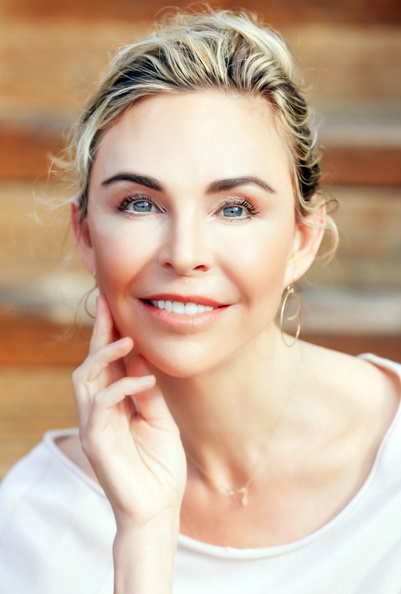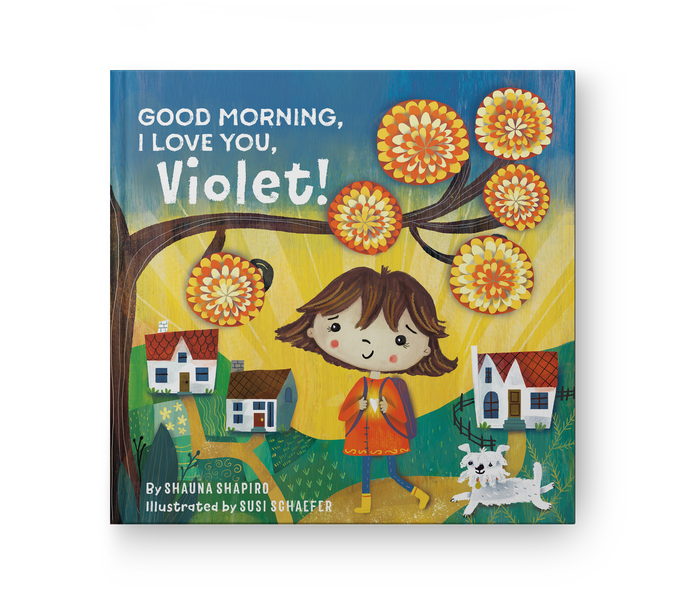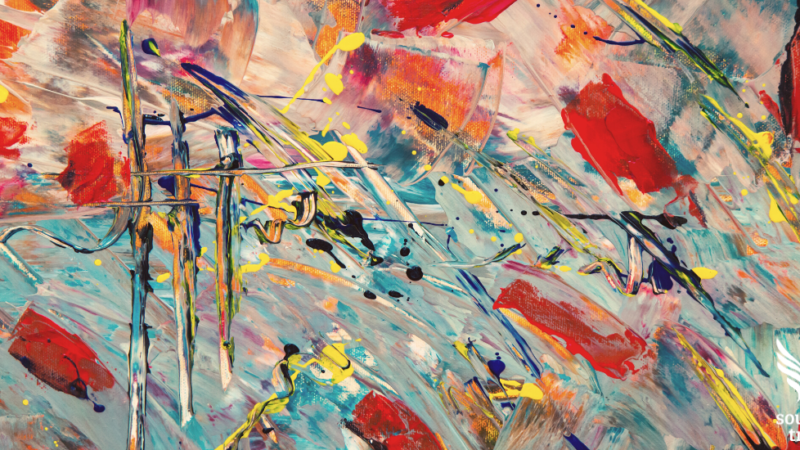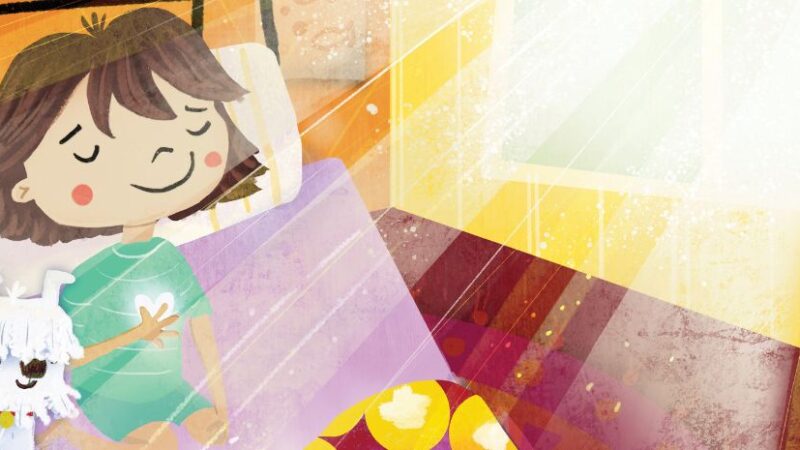Taking the Small Stuff in Stride

Especially during the holidays, it’s helpful to have a good perspective and take things in stride. Here, Lama Surya Das shares some of his favorite remindfulness practices for keeping the big picture in focus:
My own practice for not sweating the small stuff entails utilizing a few homemade quotes and potent slogans that speak to me. I keep yellow sticky notes and index cards on my desk, bathroom mirror, dashboard, wallet, and computer. I practice what I call remindfulness by remembering to look at these handwritten adages; they help me recall what is important in the bigger picture and in the long run — my values, principles, vows, practices, and goals. I let the wisdom of these maxims sink in, inevitably defusing the situation before it gets anywhere near out of hand.
Among these potent pointers, here are my favorite:
- “This too shall pass.”
- This slogan reminds me to practice patience, acceptance, and forbearance in the face of irritation and disappointment. I also remember to stay in touch with the long view, because things are cyclic and nothing happens without causes, even if not immediately apparent to me.
- “How much will this matter to me a year or two from now?”
- I also like to echo the Diamond Sutra, the world’s oldest printed book, which quotes Buddha saying: “See things as like a dream, a fantasy, a mirage.”
- I usually add the word sitcom or movie, just for fun. This traditional Dharma teaching helps me remember to regard everything as like rainbows or the divine dance of illusion. It helps me take things a lot less seriously and leave room for my inner child and little Buddha within to stand up, play, dance, and sing.
Probably the most effective, practical yoga and meditation-related maxim is this:
- “Breathe, relax, center, and smile. Nothing is as important as it seems at this moment.”
- That really cools my jets, and allows for more intelligent decision-making and clear-headed thinking to proceed.
I’ve gotten my friend Amelia into the habit of singing (often in her head) the great nursery-rhyme mantra guaranteed to defuse any difficult situation:
- “Row, row, row your boat, gently down the stream. Merrily, merrily, merrily, merrily, life is but a dream.”
If I have a good amount of time and feel inspired to co-meditate with the Masters for further spiritual relief and sustenance — perhaps when I’m sitting in a waiting room at the airport or somewhere — I either close my eyes and chant Tibetan mantras and prayers to myself, so only my collar can hear it (as Dudjom Rinpoche once advised), or I recite Buddha’s Metta Sutra (Maitri or Loving- Kindness Sermon) which includes the line:
- “May all beings be happy and at ease!”
Or I might take St. Francis of Assisi’s Peace Prayer out of my wallet and read:
- “Make me an instrument of your peace . . .”
I invite you to try my small-stuff slogans out, one at a time, and see how they work for you. Or find other one-liners and make up your own.
Looking for more great reads?
Excerpted from Make Me One with Everything by Lama Surya Das
 Lama Surya Das is one of the most learned and highly trained American-born lamas in the Tibetan Dzogchen tradition. He is the founder of the Dzogchen Center in Cambridge, Massachusetts and Austin, Texas, and the author of many books, including Awakening the Buddha Within. For more, visit surya.org.
Lama Surya Das is one of the most learned and highly trained American-born lamas in the Tibetan Dzogchen tradition. He is the founder of the Dzogchen Center in Cambridge, Massachusetts and Austin, Texas, and the author of many books, including Awakening the Buddha Within. For more, visit surya.org.
Brené Brown with Oprah on Super Soul Sunday, September 15th
Daring Greatly: Why Vulnerability is Your Greatest Stregth
Sounds True author and friend Brené Brown will appear on Super Soul Sunday this weekend with Oprah to discuss the healing and transformative power of opening to vulnerability. The common cultural wisdom tells us that vulnerability is a weakness, but is this really true? What Brené has discovered is that it is not possible to have courage in our lives unless we first open to vulnerability. We invite you to join this special two-hour interview with Brené and Oprah to find out why sharing your feelings – and having hard conversations – is the only way to dare greatly in life.
Tune in here! http://bit.ly/17RJ8xH

Learn more about Brené’s audio learning programs here:
The Power of Vulnerability – http://bit.ly/TlisvN
Men, Women, & Worthiness – http://bit.ly/12r5W51
The Gifts of Imperfect Parenting – http://bit.ly/13YlNNe
The Compassionate Brain – a free online video series!
Dear friends, we want to make sure you are aware of a truly wonderful free, online video series that we’ve put together here at Sounds True, in cooperation with our dear friend Dr. Rick Hanson, who serves as the host for the series. In each episode, Dr. Hanson is joined by a world-class scholar/teacher, including Richie Davidson, Dan Siegel, Tara Brach, Dacher Keltner, Kelly McGonigal, Kristin Neff, and Jean Houston, where they discuss different ways to use the power of neuroplasticity—how the mind can change the brain to transform the mind—to open the heart, build courage, find compassion, forgive oneself and others, and heal the world.
Watch or download the entire series here.
Here, Dr. Rick Hanson introduces the series and what you can expect. Over 30,000 people from around the world have registered for this groundbreaking series; we look forward to sharing these profound discoveries with you.
4 Ways to Practice Gratitude This Holiday Season
The holiday season can be hectic and overwhelming, with many mixed emotions, from excitement to stress. It’s the perfect time to commit to a daily practice of gratitude which will help you experience more moments of contentment and joy and give you resilience to handle the many challenges (including travel and stressful relatives). And when you share your gratitude with others, you help them feel seen, valued, elevated, and help yourself feel more closely connected to people in your life. Here are four ways to practice gratitude this holiday season.
Say Thank You and Mean It
When you thank someone, be intentional about it and put your heart and appreciation into your words. Take a moment, pause, look them in the eye, smile, and say ‘Thank you’. If there is something specific you want to thank them for, do it, go the extra step, that’s awesome.
Daily Gratitude Bookends
Begin and end your day by writing down a few things you’re grateful for. Literally bookend your day with gratitude. If you’re not a journaling type, that’s fine—how about sharing what you’re grateful for with someone else, like a family member, friend, or co-worker—in-person or via text or email. You won’t just be practicing gratitude for yourself but inspiring them to do it also. Remember to be as specific as possible and don’t neglect really small moments.
Gratitude Zoom
If you’re feeling down or caught in a negativity spiral, pause and challenge yourself to find something you can appreciate within your experience, however small. For example, if you’re sad about being sick and missing out on what you would rather be doing, can you feel grateful that you have medicine or a comfortable place to recover or people around to help care for you?
Gratitude Antidote
When something stresses you out—too much traffic, an annoying colleague, etc.—use it as a reminder to practice gratitude. You don’t have to be grateful for whatever is stressing you out, but use it as a nudge to pause, take a breath, and think of something, however small, that you are grateful for in that moment. When you do this, you prevent your brain from going into a negativity spiral, where one annoying thought brings on another, and another, and another, until you have a really rough day.
 Nataly Kogan is an author (Happier Now), speaker, and the founder of Happier. Her work has been featured in hundreds of media outlets, including the New York Times, the Wall Street Journal, TEDx Boston, SXSW, and Dr Oz. Nataly lives with her husband and daughter in Boston. For more, visit happier.com.
Nataly Kogan is an author (Happier Now), speaker, and the founder of Happier. Her work has been featured in hundreds of media outlets, including the New York Times, the Wall Street Journal, TEDx Boston, SXSW, and Dr Oz. Nataly lives with her husband and daughter in Boston. For more, visit happier.com.
Self-Love is a Superpower
Dear Sounds True friends,
I believe self-love is a superpower.
When we treat ourselves with kindness, it turns on the learning centers of the brain and gives us the resources to face challenges and learn from our mistakes. Transformation requires a compassionate mindset, not shame.
And yet, people often worry that self-love will make them lazy, self-indulgent, or self-absorbed. Science shows just the opposite: people with greater self-love are more compassionate toward others, more successful and productive, and more resilient to stress.
The best news of all: self-love can be learned. We can rewire the structure of our brain and strengthen the neural circuitry of love toward ourselves and others. Each time we practice self-love, we grow this pathway.
My new children’s book, Good Morning, I Love You, Violet!, offers a road map for strengthening your child’s brain circuitry of deep calm, contentment, and self-love.

It is built on principles of psychology and neuroscience and offers a simple yet powerful practice.

As a mother, when asked what I believe is the most important thing we can teach our children, I always answer “self-love.” Learning to be on our own team and to treat ourselves with kindness is life-changing. There is no greater gift we can give our children. There is no greater gift we can give ourselves.

May this book plant seeds of kindness that ripple out into the world.

Shauna Shapiro, PhD
P.S. I invite you to download a free coloring sheet from the book, created by illustrator Susi Schaefer, to enjoy with the children in your life.

Shauna Shapiro is a mother, bestselling author, professor, clinical psychologist, and internationally recognized expert in mindfulness and self-compassion. She lives in Mill Valley, California. Learn more at drshaunashapiro.com.

Learn More
Amazon | Barnes & Noble | Bookshop | Sounds True
Mindfulness and the Brain – with Jack Kornfield and Dan Siegel
Mindful awareness creates scientifically recognized enhancements in psychology, mental functions, and in our interpersonal relationships. But how can we integrate this information into our personal or professional lives? In the Mindfulness and the Brain online course, Jack Kornfield, PhD, and Dan Siegel, MD, offer theoretical and experiential teachings on the power of inner transformation and the cultivation of a wise and loving heart. With thoughtful dialogue and practical tools, this interactive professional development training offers therapists, healers, educators, parents, meditation practitioners—and anyone else interested in developing a healthy mind—an intriguing exploration of what it means for us and our world to be able to shift our awareness.
Complete with memorable anecdotes and real-life stories that illustrate key concepts, Mindfulness and the Brain offers a comprehensive training with specific learning objectives including: utilizing mindful practice to help reduce suffering and promote resilience; how a “resonance circuit” enables an individual to attune to oneself and others; and incorporating intrapersonal attunement to catalyze mental, interpersonal, and psychological well-being. Via weekly video downloads, you’ll receive more than seven hours of progressive insights and teachings from these renowned experts as well as seven different practices and exercises on audio to use in your personal or professional life. To deepen your learning, two live interactive Q&A sessions will be offered with Jack Kornfield and Dan Siegel.
From thorough explanations of scientific findings and down-to-earth Buddhist perspectives to moments of stillness and laughter, Mindfulness and the Brain invites you to discover a more integrated and connected way of knowing and developing a wise and loving heart.





